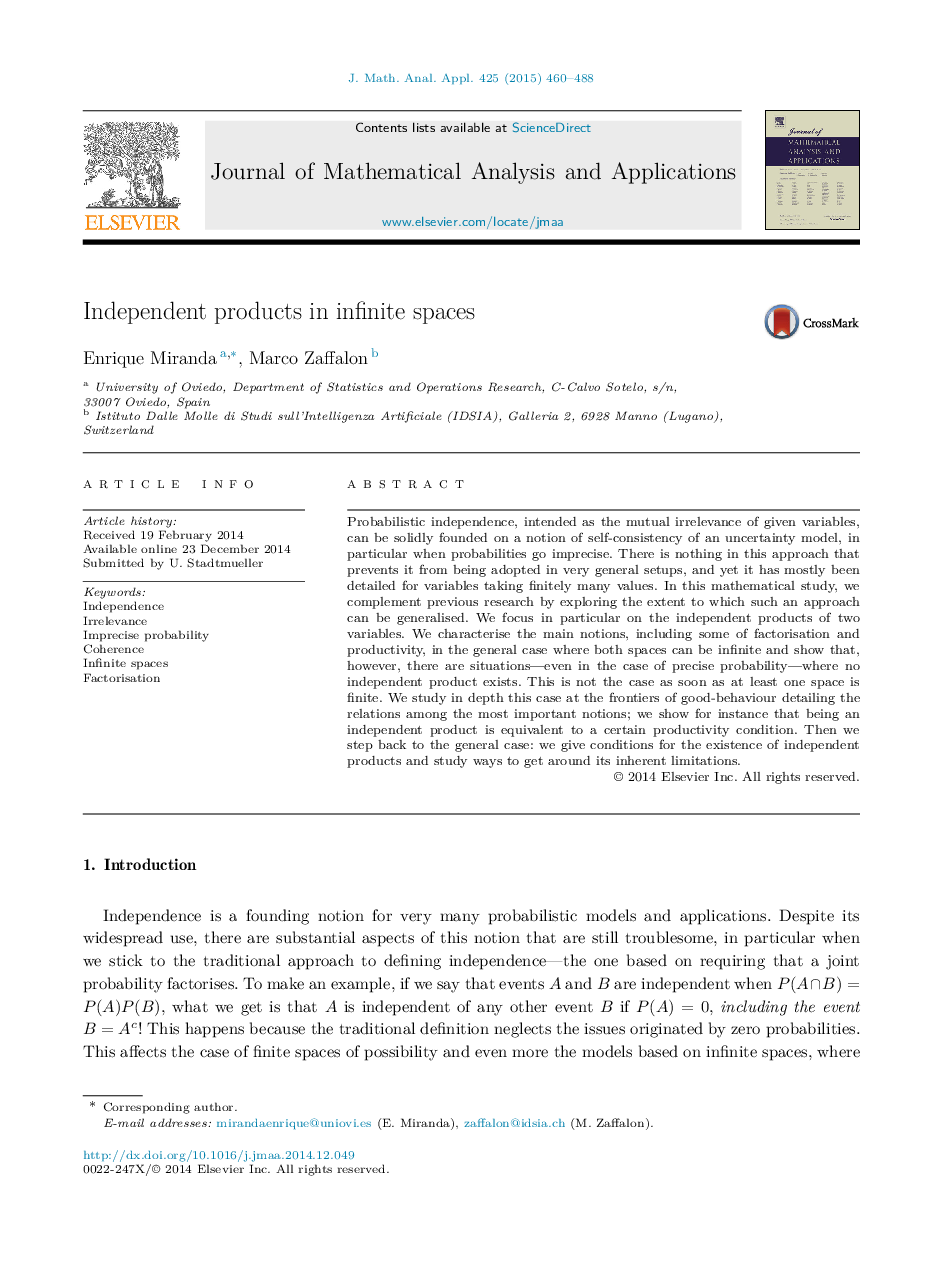| Article ID | Journal | Published Year | Pages | File Type |
|---|---|---|---|---|
| 4615336 | Journal of Mathematical Analysis and Applications | 2015 | 29 Pages |
Abstract
Probabilistic independence, intended as the mutual irrelevance of given variables, can be solidly founded on a notion of self-consistency of an uncertainty model, in particular when probabilities go imprecise. There is nothing in this approach that prevents it from being adopted in very general setups, and yet it has mostly been detailed for variables taking finitely many values. In this mathematical study, we complement previous research by exploring the extent to which such an approach can be generalised. We focus in particular on the independent products of two variables. We characterise the main notions, including some of factorisation and productivity, in the general case where both spaces can be infinite and show that, however, there are situations-even in the case of precise probability-where no independent product exists. This is not the case as soon as at least one space is finite. We study in depth this case at the frontiers of good-behaviour detailing the relations among the most important notions; we show for instance that being an independent product is equivalent to a certain productivity condition. Then we step back to the general case: we give conditions for the existence of independent products and study ways to get around its inherent limitations.
Related Topics
Physical Sciences and Engineering
Mathematics
Analysis
Authors
Enrique Miranda, Marco Zaffalon,
